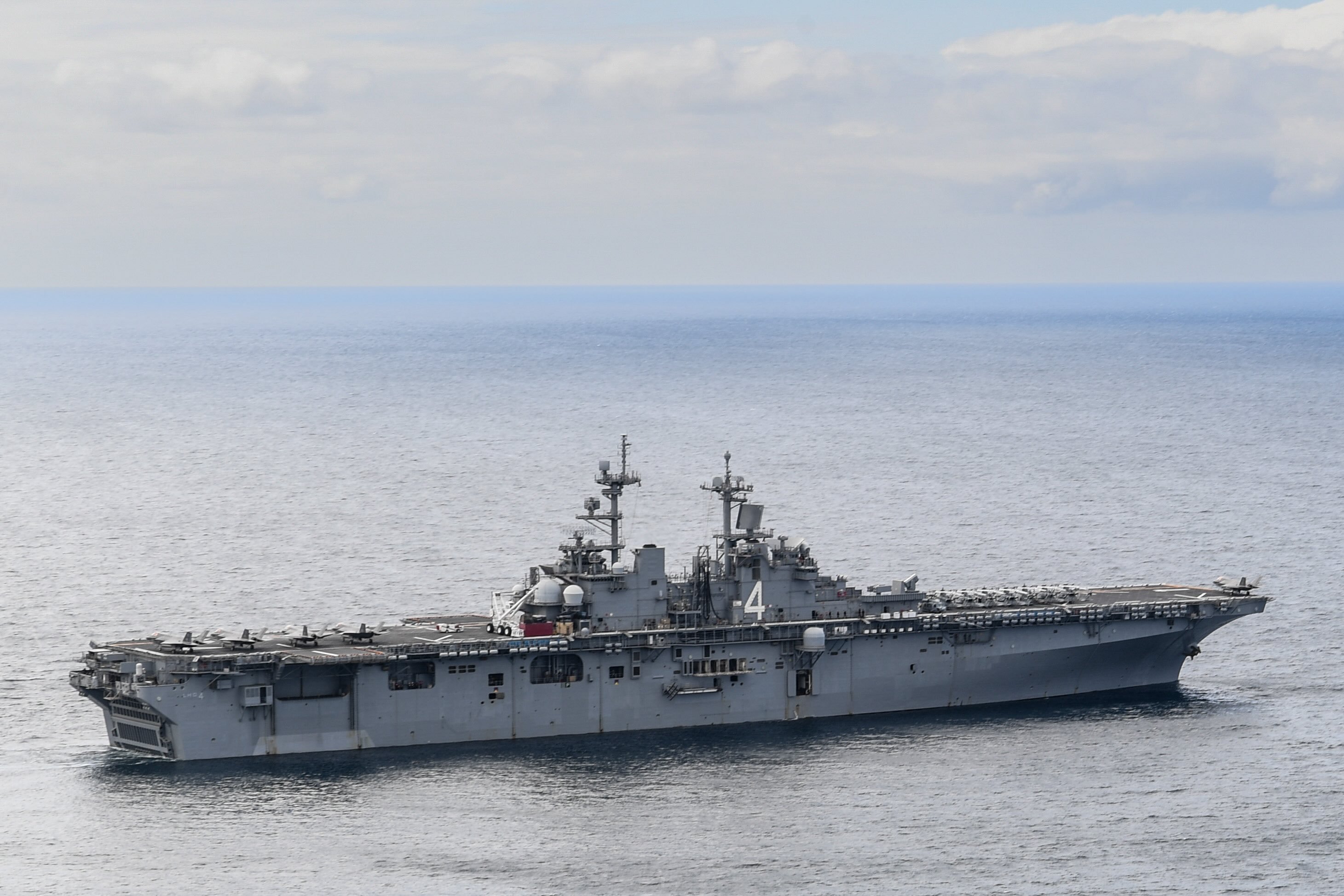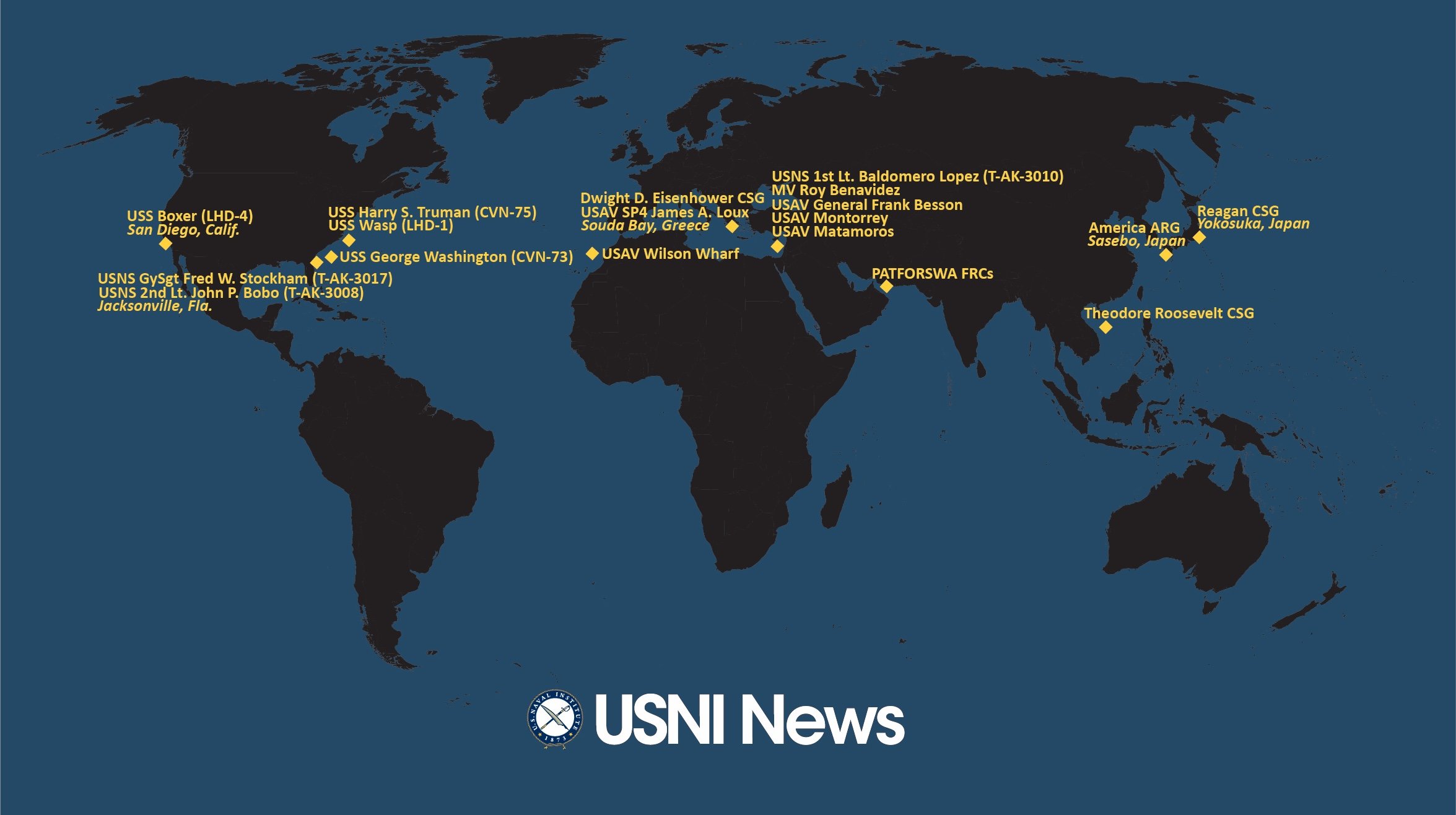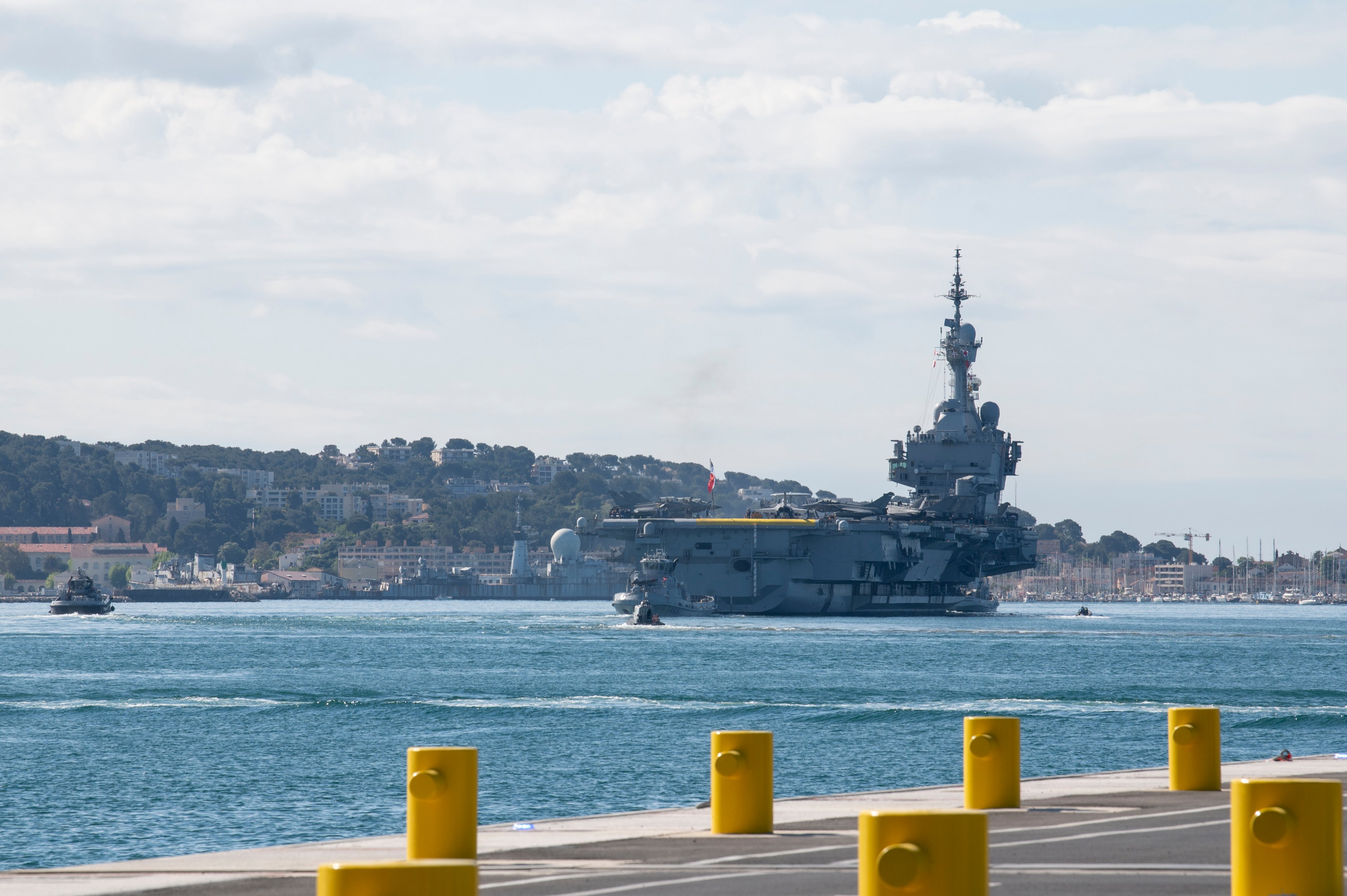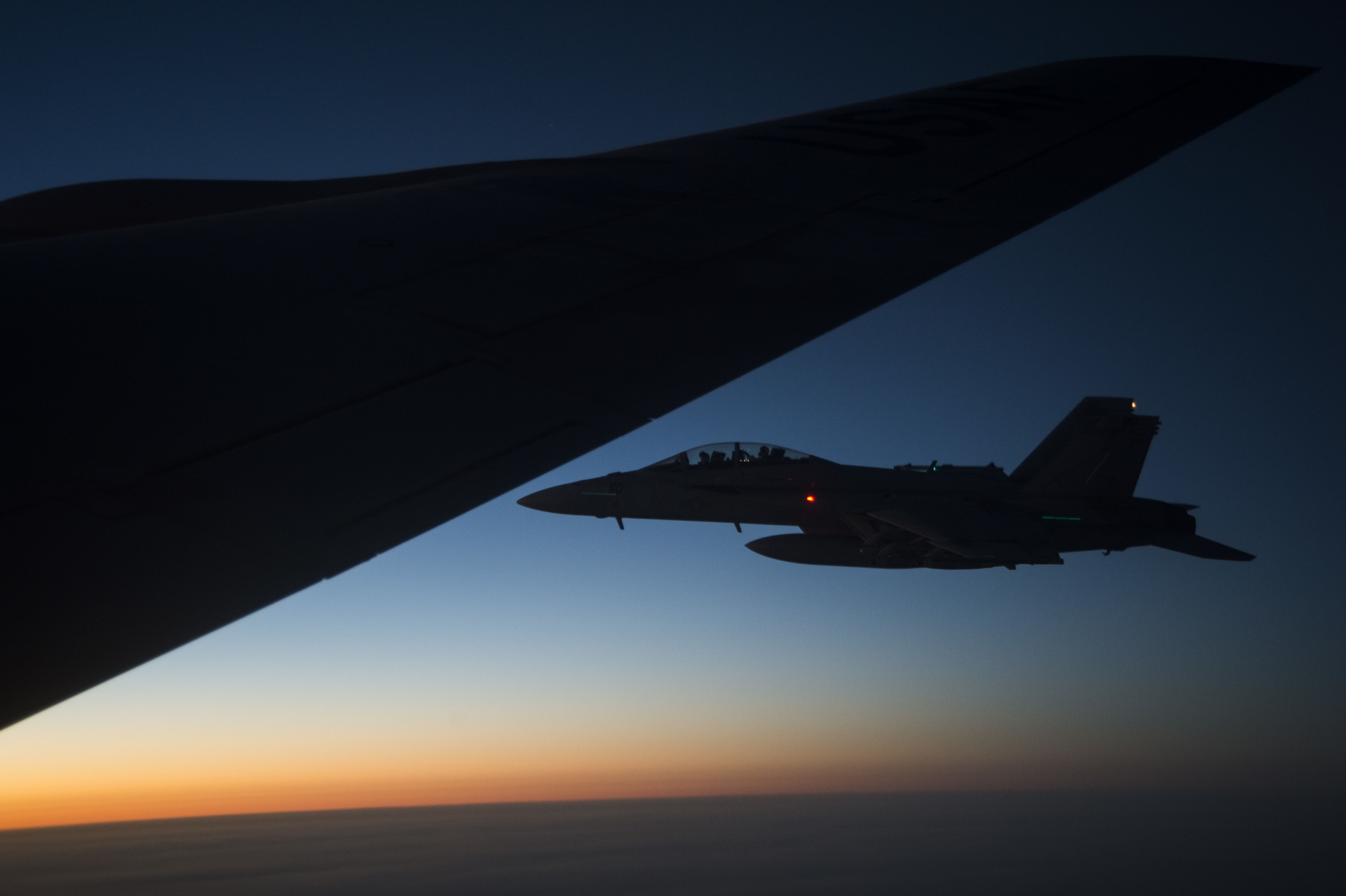
THE PENTAGON — Russia said it suspended an airspace deconfliction agreement with U.S. forces operating in and around Syria, in a statement deriding the U.S. for its Thursday night attack on a Syrian airfield with 59 Tomahawk Land Attack Missiles launched from two destroyers operating in the Eastern Mediterranean Sea, but senior U.S. military officials said the deconfliction hotline is still open and Russians are answering their calls.
“The United States conducted strikes against Syrian government troops in the early hours of April 7, using chemical weapons attacks in Idlib Province as a pretext. The U.S. opted for a show of force, for military action against a country fighting international terrorism without taking the trouble to get the facts straight,” according to a statement from the Ministry of Foreign Affairs of the Russian Federation.
“Russia suspends the Memorandum of Understanding on Prevention of Flight Safety Incidents in the course of operations in Syria signed with the U.S.”
However, a senior military official speaking to reporters today on background said that “we have a Memorandum of Understanding with the Russian forces within that area, in Syria, and that Memorandum of Understanding agreement is still being used and being supported.”
The official said that, despite Russian comments and media reports, “that has not stopped, those are continuing on” and “we’ve had discussions with the Russians after the attack to confirm that the Memorandum of Agreement is still active, and they confirmed that it is.”
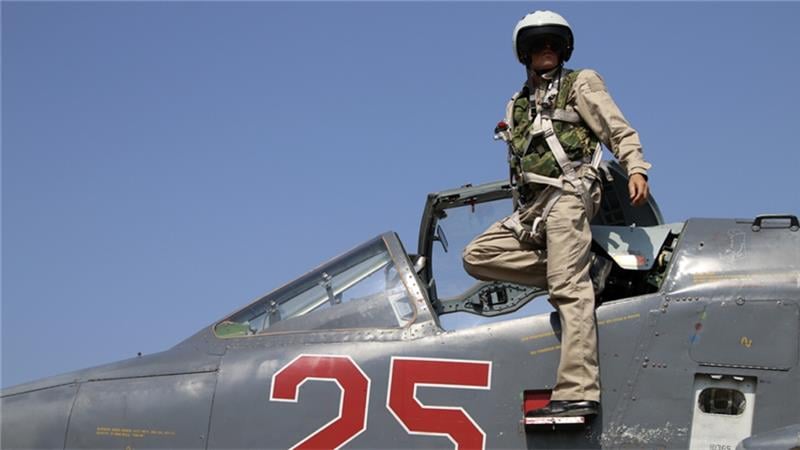
“There’s someone on the other end who’s listening to us,” the official added. “They are answering on the other end. … It literally is daily, we deconflict operations between the U.S. and Russian forces,” to include that deconfliction hotline being used today.
Under the deconfliction agreement, set up in the fall of 2015, U.S. and Russian forces can communicate via a flight safety hotline run out of the Combined Air Operations Center at U.S. Central Command. Previous uses of the hotline include a Russian official alerting coalition forces in September 2016 that the targets they were attacking and believed to be Islamic State forces were, in fact, Syrian government-aligned forces, and U.S. officials alerting the Russians in March 2017 that Russian and Syrian fighters were bombing U.S.-backed fighters rather than Islamic State forces.
Pentagon spokesman Navy Capt. Jeff Davis told reporters in a statement Thursday night that the U.S. warned Russia about the strike before firing 59 Tomahawk Land Attack Missiles from USS Porter (DDG-78) and USS Ross (DDG-71) at the Western Syrian target.
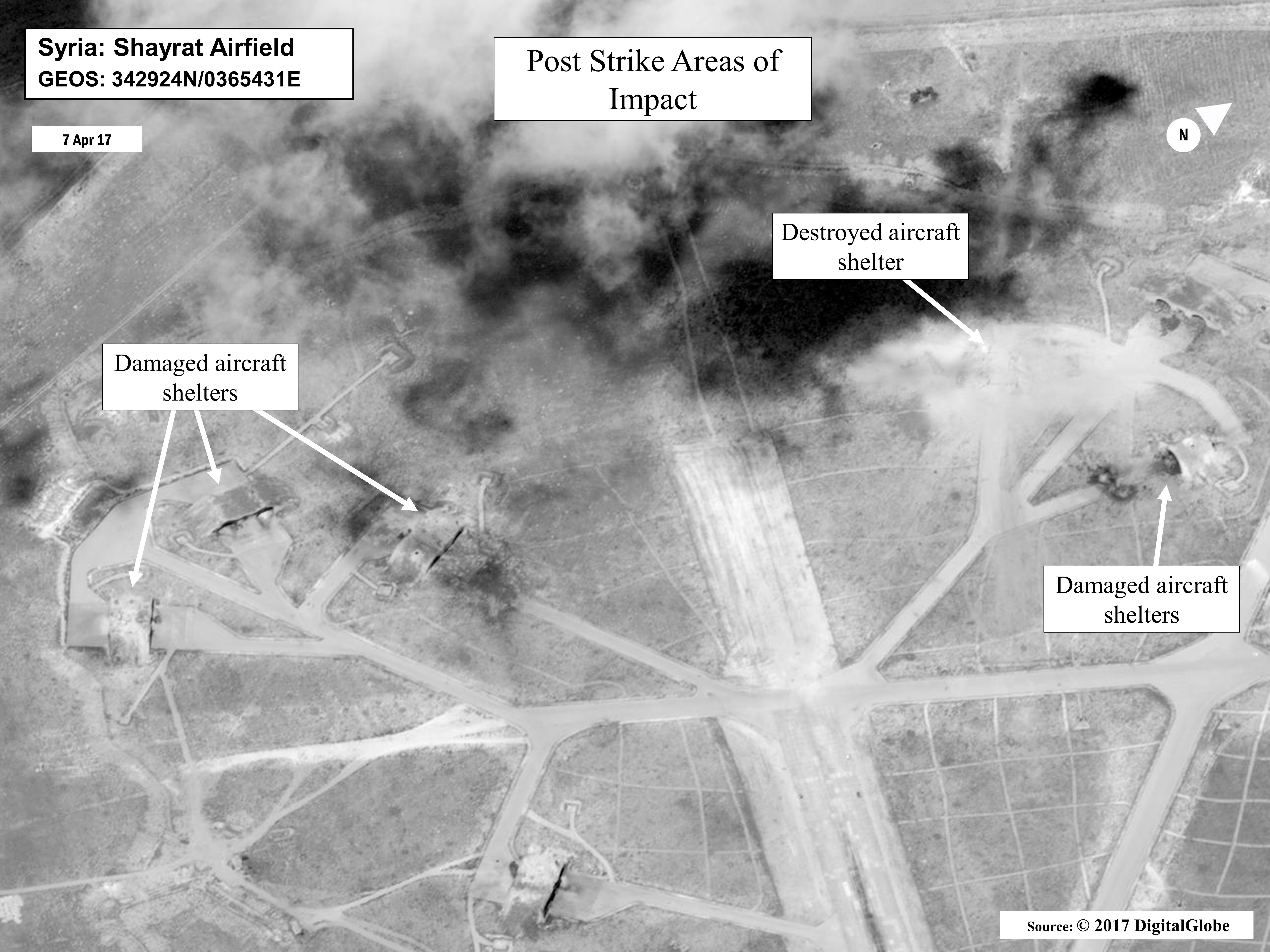
The senior military official briefing reporters on Friday said the Russians were told the exact airfield that was being targeted – where the Russians operate rotary wing aircraft and have pilots, ground maintenance crews and other support personnel on a regular basis. The 59 targets chosen by military planners were selected to avoid Russian assets – the official said the U.S. military didn’t want even fragmentation from the explosions damaging Russian aircraft – and the Russians were alerted in advance so as not to misinterpret the strike. The U.S. made no demands of the Russians, but a second senior military official at the briefing said that despite advanced air defense capabilities in the area the Russians had no reaction during the strike and did not try to intercept any of the incoming Tomahawk missiles.
Still, the Russians followed up this morning with strong language condemning the attack. The Navy and Office of the Secretary of Defense are strongly advocating open dialogue with Russian military forces regarding air space deconfliction in Syria, despite the Russian statements.
“We want people to be safe in the sky and we certainly encourage them to have a frank and open dialogue with what they’re doing, and it’s something that we would do too,” a Navy official told USNI News today of the flight safety hotline.
“We hope that doesn’t that go away, but we feel very strongly about the (Thursday night) strikes and the reasoning behind them.”
OSD spokeswoman Navy Cmdr. Sarah Higgins told USNI News this morning that “the Department of Defense maintains the desire for dialogue through the flight safety channel. It is to the benefit of all parties operating in the air over Syria to avoid accidents and miscalculation, and we hope the Russian Ministry of Defense comes to this conclusion as well.”
Without the hotline as a facilitator of communications, U.S. and Russian military officials have few other opportunities to communicate, OSD spokeswoman Army Lt. Col. Michelle Baldanza told USNI News.
“The United States and Russian militaries continue to interact on a limited set of issues, such as the safety of operations for deployed forces. The recurring calls regarding the safety of flight over Syria are an example of this dynamic. The United States and Russia also maintain senior-level lines of communication as appropriate. However, the Department of Defense suspended military-to-military cooperation with the Russian Armed Forces following Russia’s illegal attempted annexation of Crimea in Ukraine, and this restriction is now written into law as part of the National Defense Authorization Act (NDAA).”
Russia has helped prop up Syrian leader Bashar al-Assad and his military forces during a civil war that has now dragged on for six years. Russian fighters and warships have launched attacks on so-called terrorists – sometimes Islamic State forces, and sometimes non-ISIS rebel forces fighting the Syrian regime.
Davis made clear in his Thursday night statement that U.S. intelligence proved the Syrian government launched a chemical weapons attack against civilians earlier this week in the town of Khan Sheikhoun, with the airplanes originating from the al-Shayrat Airfield that was targeted Thursday night. Russia, however, insists that the chemical weapons were used by terrorist forces and that the Syrian government was not involved.
“The President of Russia regards the U.S. airstrikes on Syria as an act of aggression against a sovereign state delivered in violation of international law under a far-fetched pretext. The Syrian Army has no chemical weapons. The fact of the destruction of all Syrian chemical weapons’ stockpiles has been recorded and verified by the OPCW, a specialised UN body. Vladimir Putin believes that complete disregard for factual information about the use by terrorists of chemical weapons drastically aggravates the situation,” according to a statement the Kremlin released today.
“This move by Washington [the U.S. airstrike on an air base in Syria] has dealt a serious blow to Russian-U.S. relations, which are already in a poor state. Most importantly, this move will not bring us closer to the ultimate goal of combatting international terrorism but will instead create a major obstacle to the establishment of an international counterterrorist coalition and to effective struggle against this global evil, something that U.S. President Donald Trump declared as one of his main goals during his election campaign.”



